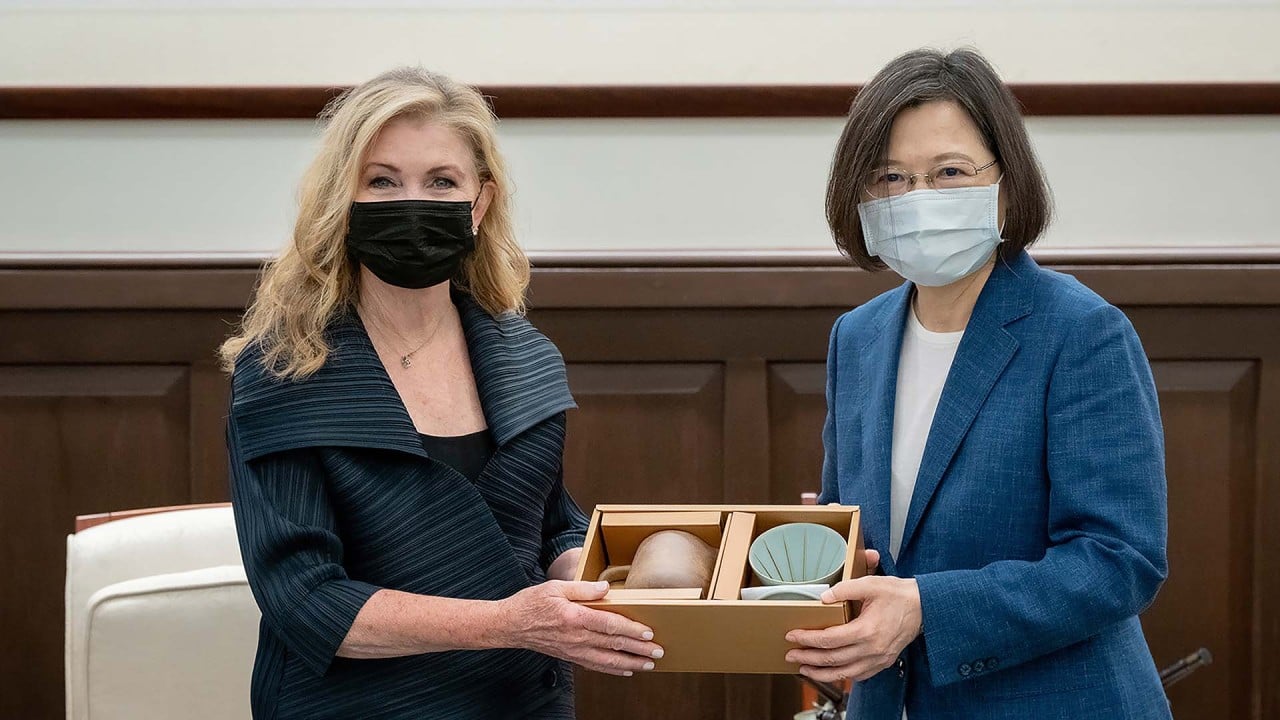
US approves potential US$1.1 billion arms sale to Taiwan amid cross-strait tensions
- Announcement comes in wake of massive PLA military drills around island
- Deal includes Sidewinder air-to-air missiles and Harpoon anti-ship missiles
In a move likely to worsen tensions with Beijing, the US State Department has approved the sale of US$1.1 billion worth of military equipment to Taiwan, including advanced missiles and support for the island’s surveillance radar capabilities.
The sale, approved on Friday, includes about US$85.6 million worth of Sidewinder missiles, used for air-to-air and surface-attack strikes, Harpoon anti-ship missiles worth about US$355 million and support for Taiwan’s surveillance radar programme worth around US$665.4 million, according to the department.

“Consistent with the Taiwan Relations Act, the United States makes available to Taiwan defence articles and services necessary to enable it to maintain a sufficient self-defence capability,” a State Department spokesman said.
US ‘provocations’ over Taiwan must get fit response, Beijing says
“The United States’ swift provision of Taiwan defensive weaponry and sustainment … is essential for Taiwan’s security and we will continue to work with industry to support that goal. These proposed sales are routine cases to support Taiwan’s continuing efforts to modernise its armed forces and to maintain a credible defensive capability.”
Supersonic Sidewinder missiles are equipped with an infrared heat-seeking guidance system and allow pilots to aim at targets with their helmet displays. The Harpoon missiles are more resilient against electronic interference than their predecessors.
Beijing sees Taiwan as breakaway territory awaiting reunification under its one-China principle, and has not ruled out the use of force to bring it back into the fold. The US, while a strong supporter of Taiwan, does not – like most countries – recognise the island as an independent state. However, it is opposed to any attempt to take the island by force.
The sale can be finalised after approval by the foreign affairs committees in the US Senate and House of Representatives, a likely outcome given that both political parties in the US have become increasingly supportive of the Taiwanese government.
Taiwanese President Tsai Ing-wen has hosted a number of delegations from the US since Pelosi’s trip.
As US President Joe Biden’s administration has done throughout the recent tensions around Taiwan, the State Department said that its approval of the weapon sales did not violate Washington’s one-China policy.
“For four decades, the US one-China policy has been guided by the Taiwan Relations Act, the three Joint Communiques, and the Six Assurances,” the department spokesman said. “We urge Beijing to cease its military, diplomatic, and economic pressure against Taiwan and instead engage in meaningful dialogue with Taiwan.”


